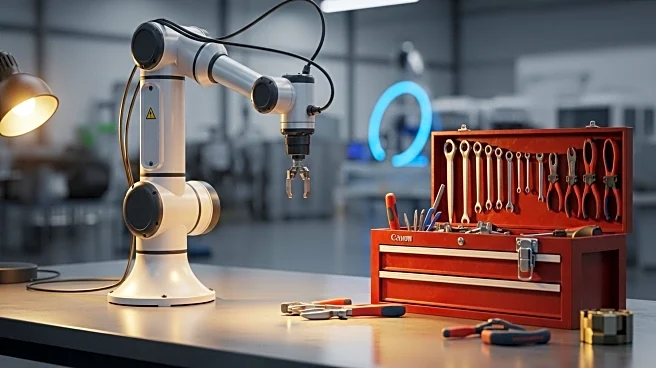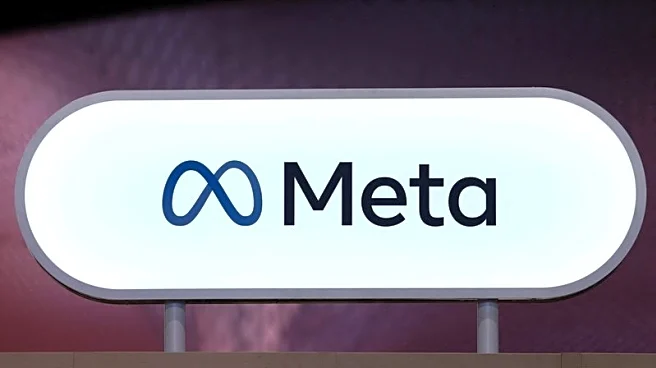What's Happening?
A growing number of young Americans are opting for careers in skilled trades as artificial intelligence begins to affect entry-level white-collar jobs. Jacob Palmer, a 23-year-old electrician, chose to forego college and establish his own business, Palmer Electrical, which is projected to generate over $150,000 in revenue this year. The shift is partly due to the high cost of college education, which averages $38,000 annually, and the increasing unemployment rate among recent college graduates, now at 4.6%. In contrast, non-college-educated workers have seen a smaller increase in unemployment. The skilled trades, including electricians, plumbers, and HVAC technicians, offer job security and independence, attracting Gen Z workers who are wary of AI's impact on traditional career paths.
Why It's Important?
The trend towards blue-collar careers highlights a significant shift in the job market, driven by economic factors and technological advancements. As AI continues to automate white-collar roles, the demand for skilled trades is rising, offering stable employment opportunities without the burden of student debt. This shift could reshape the U.S. workforce, with more young people pursuing vocational training and apprenticeships. Industries reliant on skilled labor may benefit from a larger pool of qualified workers, while traditional sectors may need to adapt to the changing landscape. The move also reflects changing perceptions of blue-collar work, which is increasingly seen as a viable and respectable career path.
What's Next?
As AI technology advances, the demand for skilled trades is expected to grow, potentially leading to increased investment in vocational training programs. Educational institutions may expand their offerings to accommodate this shift, while employers in the trades could see a surge in applications. Policymakers might focus on supporting vocational education and addressing the economic challenges faced by college graduates. The evolving job market may also prompt discussions on the role of AI in employment and the need for policies that balance technological progress with job security.











